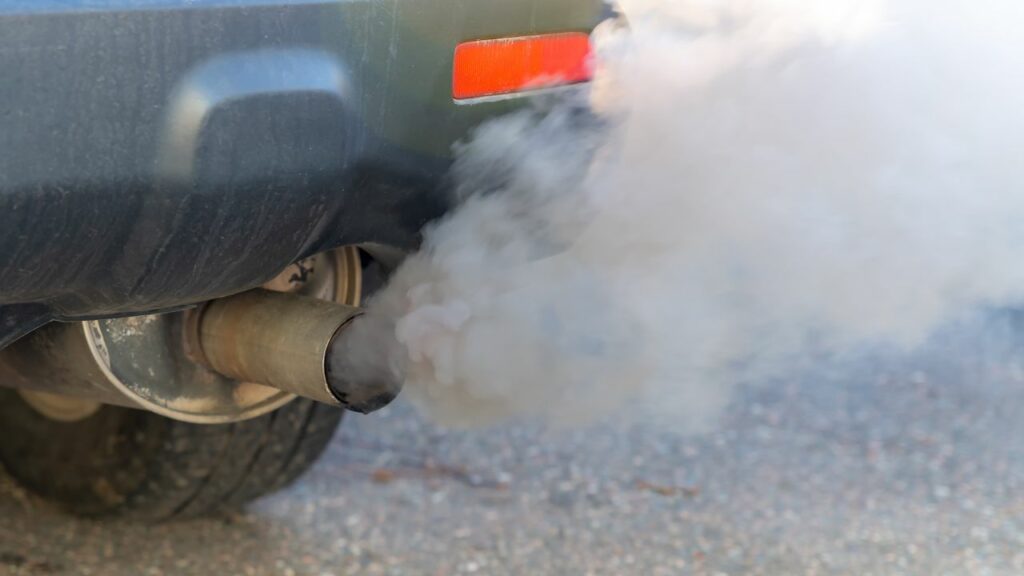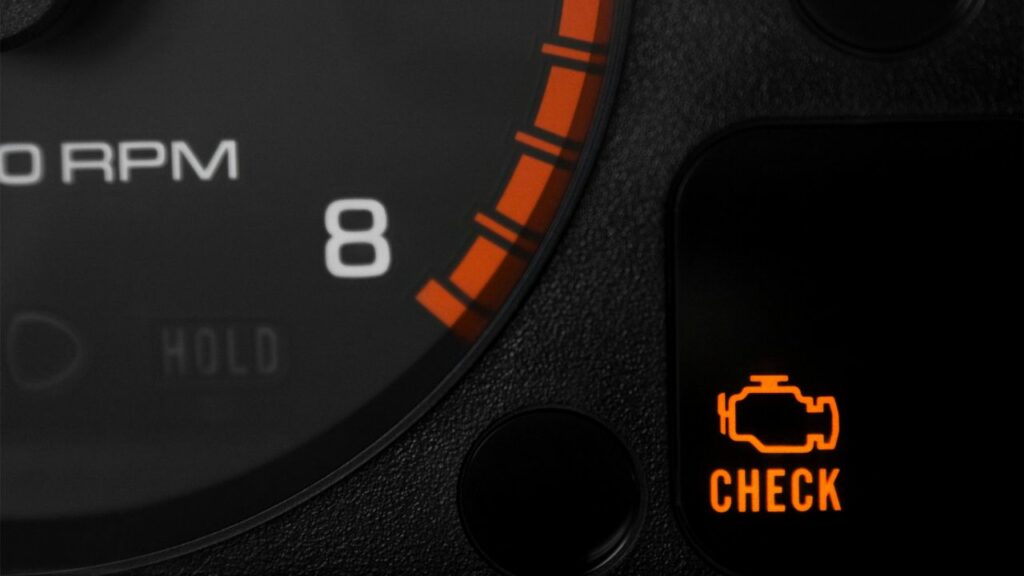Many car owners are unaware of the importance of catalytic converters in their cars.
This small component is responsible for reducing harmful emissions from the engine, and it can become damaged over time or due to other reasons (I’ll discuss that in a minute)
Replacing a catalytic converter can be expensive so some people choose to drive with a bad one.
But is driving with a bad catalytic converter a good idea?
Driving with a bad catalytic converter can cause a number of problems, including decreased fuel efficiency and performance, increased emissions, and damage to the engine.
In this article, I’ll discuss the effects of a bad catalytic converter and whether or not you should drive with one.

Table of Contents
- Can You Drive With A Bad Catalytic Converter?
- Driving With a Bad Catalytic Converter: What Happens Next?
- Is Driving With a Bad Catalytic Converter Safe?
- Symptoms of A Bad Catalytic Converter
- What Causes a Catalytic Converter to Fail?
- How Much Does It Cost to Replace a Catalytic Converter?
- Frequently Asked Questions
- What happens if you drive with a bad catalytic converter?
- Can a bad catalytic converter ruin your engine?
- How long does a catalytic converter last?
- Can a bad catalytic converter cause a P0300 code?
- What happens if I don’t fix my catalytic converter?
- Will a car start with a bad catalytic converter?
- How much is a bad catalytic converter worth?
- Conclusion
Can You Drive With A Bad Catalytic Converter?
Yes, you can drive with a bad catalytic converter, but it is not advisable to do so for an extended period of time. A failed catalytic converter will cause your vehicle to run less efficiently and produce more harmful emissions.
If you must drive with a bad catalytic converter, try to do so only for short distances and avoid heavy traffic if possible as that can overheat your engine.
You should also have your vehicle checked by a mechanic as soon as possible to avoid further damage.
Driving With a Bad Catalytic Converter: What Happens Next?
Driving with a bad catalytic converter is possible and it isn’t too dangerous. If a small part of your catalytic converter is plugged, your car will run but not as smoothly as it usually would. The performance of the catalytic converter will be severely reduced, and you may see a noticeable decrease in your gas mileage. However, if the catalytic converter is fully plugged, your car might not run at all.
However, if you’ve been driving with a bad catalytic converter for a long time, it might lead to severe problems and need to be replaced immediately.
Here are a few common changes you’ll notice if you’ve been driving with a bad or failing catalytic converter.
Engine overheating
One of the most noticeable and frequent changes you’ll see if you’re driving with a bad catalytic converter is engine overheating.
Every catalytic converter contains a layer of honeycomb mesh that’s coated with precious metals like platinum and palladium. These precious metals act as a catalyst, converting harmful emissions into less harmful gases.
If the catalytic converter is damaged or faulty, these metals can break down and be released into the engine. As a result, the engine will run hotter than usual because it’s not able to convert the harmful gases properly.
If you notice that your engine is overheating more frequently, it’s a good idea to get it checked by a mechanic as soon as possible.
Decreased fuel efficiency
Another common symptom of a bad catalytic converter is decreased fuel efficiency. With rising prices of fuel, everyone’s looking for ways to cut down on fuel costs. One way to do that is to maintain your car well so that it runs efficiently.
If your car’s catalytic converter is not working properly, it will affect the engine’s ability to burn fuel efficiently as the engine has to work harder to produce the same power.
As a result, you’ll notice that your car is using more gas than usual and you might have to fill up your tank more frequently.
If you’re concerned about decreased fuel efficiency, keep track of your car’s gas mileage and compare it to previous fill-ups.
Increase in exhaust fumes

With a functional catalytic converter, you’d hardly notice any exhaust fumes coming from your car. However, if the catalytic converter is damaged, you’ll notice an increase in dark exhaust fumes. In some cases, the fumes might even be visible to the naked eye.
This is because the catalytic converter helps to convert harmful gases into less harmful ones and filter them before they’re released into the atmosphere.
A faulty catalytic converter will not be able to convert the harmful gases into less harmful ones as effectively, so you’ll see an increase in emissions coming from your car’s tailpipe.
Failing emissions test
In most US states, your car needs to pass an emissions test before it can be registered. Some even require annual or bi-annual emission tests.
With a bad catalytic converter, it’s likely that your car will fail the emissions test as it’ll be releasing higher than allowed emissions.
If your car fails the emissions test, it’s important to get it fixed as soon as possible and you have 30 days to fix it and take the car back for a free retest. If you don’t pass the emissions test after that, you’ll have to pay a $20 fee.
And if your car still doesn’t pass, you won’t be able to renew your registration until you do something about it.
Your vehicle will be louder
Lastly, if you’ve been driving with a bad catalytic converter, you’ll notice that your car is loud. This is because the honeycomb mesh inside the converter acts as a muffler.
If the mesh is damaged/clogged, or the converter is not working properly, it won’t be able to muffle the noise coming from the engine as effectively.
As a result, your car will be louder than usual, both inside and outside the vehicle.
Is Driving With a Bad Catalytic Converter Safe?
Yes, driving with a bad catalytic converter is safe for a short period of time. However, it’s not something that you should do for an extended period of time as it can cause long-term damage to your engine.
In most cases, your catalytic converter might be partly broken so it’s still able to do its job of converting harmful emissions.
However, if it’s completely damaged, it won’t be able to do its job and you’ll start to see the symptoms mentioned above.
If you’ve been driving with a bad catalytic converter for a while and haven’t had any issues, chances are it’s only a matter of time before something goes wrong.
It’s always better to be safe than sorry, so I recommend getting it checked out and replaced as soon as possible.
Symptoms of A Bad Catalytic Converter
If you aren’t an automotive nerd, it might be hard to tell if your catalytic converter is going bad. As a result, you might not know there’s a problem until it’s too late.
To help you out, I’ve put together a list of symptoms that’ll let you know if your catalytic converter is going bad.
Check engine light is on

One of the first signs that something is wrong with your catalytic converter is the check engine light. If the light comes on and stays on, it means that there’s a problem with the emissions control system.
When the check engine light comes on, it’ll usually be accompanied by a code. The code will tell you what’s wrong with the vehicle. In most cases, the code will be related to the catalytic converter or oxygen sensor.
If you see the check engine light, you need to run a diagnostic test. This will confirm whether or not the catalytic converter is the problem.
Sluggish acceleration
Another symptom of a bad catalytic converter is sluggish acceleration. When the converter is going bad, it’ll restrict the flow of exhaust gases. As a result, the engine will lose power and have difficulty accelerating.
You’ll also notice reduced low-end torque, meaning your car won’t have as much power when accelerating from a stop.
If you notice that your car is taking longer to accelerate than usual, it’s a good idea to get it checked out.
Rattling sound from the exhaust
If you hear a rattling noise coming from your exhaust, it may mean that your catalytic converter is damaged.
Honeycomb mesh inside the converter can break or shatter, which will cause the pieces to jostle around and produce a rattling noise. The noise will be most noticeable when you make a turn or brake your vehicle.
If you hear a rattling noise coming from your car, it’s important to get it checked out as soon as possible.
What Causes a Catalytic Converter to Fail?
The most common cause of catalytic converter failure is simply aging. Over time, the honeycomb mesh inside the converter will break down and become clogged with carbon deposits. This will reduce its ability to convert harmful emissions.
Here are a few other things that can cause your catalytic converter to fail:
- Old engine or poor engine maintenance: If your engine is old or hasn’t been well-maintained, it’s more likely to have problems with the catalytic converter.
- Frequent short trips: Taking lots of short trips can also cause your converter to fail because it doesn’t get hot enough to properly convert emissions.
- Oil or antifreeze entering the exhaust system: If oil or antifreeze leaks into the exhaust system, it can damage the converter.
- Physical damage: If your catalytic converter is damaged by a physical object, it might not be able to function properly.
- Unburned fuel in the exhaust system: An excess of unburned fuel in the exhaust system can also damage or clog the catalytic converter.
How Much Does It Cost to Replace a Catalytic Converter?
The cost of replacing your catalytic converter will depend on the make and model of your vehicle. In most cases, it’ll cost between $500 and $2000 to replace the converter. You can also look for used catalytic converters, which will be cheaper but might not last as long.
In general, cars like GM, Chevy, and some other American automobile companies use less expensive catalytic converters so it’ll be cheaper to get them replaced.
On the other hand, luxury cars like Ferrari, Lamborghini, and Mercedes use more expensive catalytic converters and it can cost as high as $7000 to get new ones.
Cars | Catalytic Converter Value |
Ferrari F430 | $3,770 (2 units) |
Lamborghini Aventador | $3,120 (2 units) |
Ram 2500 | $3,460 |
Ford F-250 | $2,804 |
Ford Mustang | $1,500 |
If you’re not sure how much it’ll cost to replace your catalytic converter, I recommend taking your car to a mechanic and getting a quote.
Frequently Asked Questions
What happens if you drive with a bad catalytic converter?
In some US states, you will not be able to register your car with a bad catalytic converter if it doesn’t pass the emissions test. In addition, driving with a bad catalytic converter may damage other parts of your engine and cause your car to run less efficiently.
Can a bad catalytic converter ruin your engine?
A bad catalytic converter can damage other parts of your engine, but it typically won’t ruin the engine. However, if left untreated, a contaminated, clogged, overheated, or physically damaged catalytic converter can eventually lead to engine failure.
How long does a catalytic converter last?
If maintained properly, catalytic converters last for 10 or more years without any problem.
Can a bad catalytic converter cause a P0300 code?
Yes, a bad catalytic converter can cause the P0300 code. This code indicates that there is an engine misfire and the exhaust is not able to breathe properly.
What happens if I don’t fix my catalytic converter?
Nothing will happen immediately if you don’t fix your catalytic converter, but over time it will become less and less effective at converting emissions. Eventually, it will degrade, collapse, and plug the exhaust system, which can cause an engine shutdown.
Will a car start with a bad catalytic converter?
Yes, a car will start with a bad catalytic converter, but it will run less efficiently with reduced fuel economy. The engine will also produce more emissions, which can be harmful to the environment.
How much is a bad catalytic converter worth?
A bad catalytic converter can be sold as scrap and the price will depend on the total amount of precious metals inside it as well as the make and model of your car. In general, you can expect to get $50-$200 for a bad catalytic converter.
Conclusion
A bad catalytic converter can be costly to replace, but it’s important to do so if it’s not functioning properly.
Driving with a bad catalytic converter for a long period of time can damage other parts of your engine and cause your car to run less efficiently. You’ll also have a hard time passing the emissions test and can be fined if pulled over by traffic police.
If you think your catalytic converter is going bad, I recommend taking it to a mechanic for a diagnosis. They can tell you for sure if it needs to be replaced and give you an estimate of the cost.

Robert Bacon is a car nerd and automotive lover who has dedicated his life to understanding the inner workings of vehicles. He holds a degree in mechanical engineering and has spent years working as a mechanic and engineer for some of the world’s top car companies. In his spare time, he enjoys writing about cars on this blog and tinkering with his 2016 Toyota Mirai in his garage.